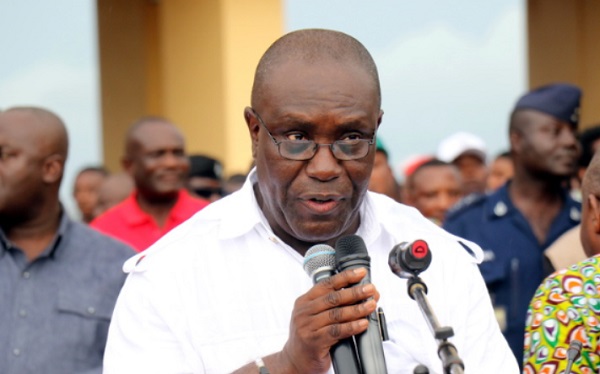Reject electricity and water tariff hike proposals – TUC urges government
The Trades Union Congress (TUC) has asked the government not to accept the proposal for a huge increment in utility tariffs.
While the Electricity Company of Ghana (ECG) wants an increase of up to 148 per cent, the Ghana Water Company Limited (GWCL) is also requesting a nearly 326% hike in tariffs.
According to the TUC, the timing to make such a demand was wrong. Therefore, it should not be accepted.
TUC mentioned that Ghanaians were saddled with enormous economic challenges. Hence government needs to find a way to reduce the hardships.
For them, an increase in tariffs again will worsen the plight of citizens.
“This is not the right time for these increases to be made. As a country, we are going through enormous economic challenges; a rising inflation rate, rising food prices, high cost of living, etc. This is not the right time.
“We have a government that should listen to the citizenry and introduce intervention to support the citizenry. So we expect the government to intervene to ensure that this proposal is not accepted. For me, the government should not endorse the proposal until the salaries of workers are improved,” Deputy Secretary-General of the TUC, Joshua Ansah, said on TV3.
In separate proposals to the Public Utilities Regulatory Commission (PURC), ECG and GWCL indicated that the increment would help their respective companies to stay afloat amidst the rising cost of operations.
The electricity company has based its demand on the Distribution Service Charges (DSC) and subsequently proposed an average increase of 7.6% in tariff over the next four years to cover the DSC.
It also mentioned the continual application of the prevailing tariff (which was 14% lower) beyond the stipulated regulatory period and the effect of macroeconomic factors such as inflation and exchange rate fluctuation.
“The result of ECG’s tariff proposal for the next five years shows an approximately 148% increase on the current DSC1 in 2022 and an average increase of 7.6% year on year from 2023 to 2026.
“The high increase in the DSC1 for the year 2022 could be attributed to the gap that has developed over the years between the actual cost recovery tariff and the PURC approved tariffs as well as the cost of completed projects.
“Similarly, ECG’s proposed DSC2 shows a higher increase of 28.4% in the first year (2022) while that of the subsequent years increases by an average of 2% from 2022 to 2026,” the company said.
TUC is not the only concerned party.
The Ranking Member for Energy Committee in Parliament, John Jinapor, also expressed worry over actions that will over-burden consumers.
“Why are they going back to 2019 and 2020? We cannot adjust prices for those years and go back again. Moreover, ECG’s losses have increased from 22% to 30%. These inefficiencies cannot be passed on to consumers.
“The other thing that is leading to this proposed increase is the exchange rate, the fall of the cedi is due to the bad management of the economy. The ordinary Ghanaian must not suffer.” Mr Jinapor said on TV3.
But, CUTS International Accra, a research and public policy think tank focused on consumer sovereignty, disagrees with both the ranking member and TUC.
They say calls for increased tariffs by utility companies are justified and must be considered.
Its Executive Director, Appiah Adomako, said without an adjustment in tariffs, the operations of the utility companies might be halted.
He said while increasing tariffs may strain the finances of consumers, the prevailing situation of the utility companies and related factors on the market makes it necessary.
“We can’t be irrational because most of the thing ECG uses, it imports them; crude oil is being imported with all the dollar and exchange rate issues. If you don’t permit the utility companies to increase their prices, there wouldn’t be the required investment that will help keep the system running, so one day, we will suffer a situation where the electricity goes down. There will not be any incentive for investors to come into the sector, especially the Independent Power Producers,” he explained on Citi TV.



